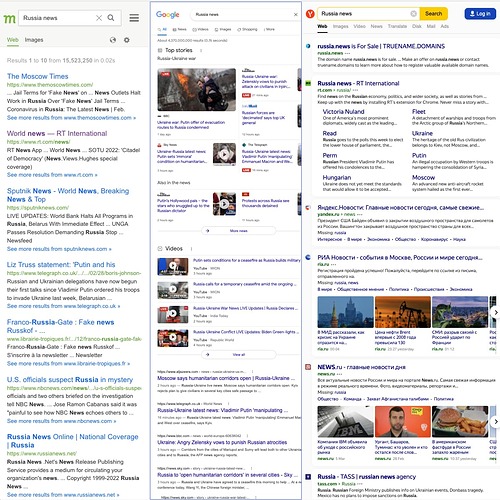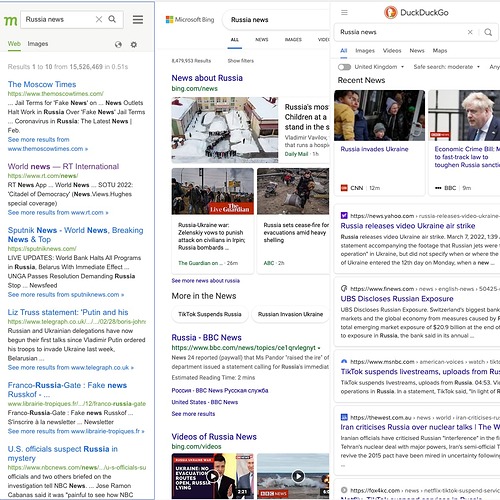Given the fact that many engines exist, I don’t have a huge problem with one of them making these choices as long as they are extremely transparent about it.
I generally feel that the transparency isn’t high enough in most cases, and that’s what causes me to feel concerned.
Engines are already necessarily biased towards some content more than others. If I start blogging about the invasion of Ukraine, I don’t expect to rank above mainstream news sources covering the same content. Ranking algorithms are literally designed to rank some content above others; there’s going to be some bias, intentional or unintentional, involved.
Search engines have to deal with unwanted results occupying the confusing overlap between SEO spam, shock content, and duplicate content. When this content’s manipulation of ranking algos causes it to rank high, engines have to address it through manual action or algorithm refinement. Choosing to address it through either option, or choosing to leave it there for popular queries after receiving user reports, reflects bias.
Two complementary ways to handle inevitable bias are transparency and options. Engines should be honest about where manual actions took place and why. People should use more than one engine with independent rankings/indexes so that one bias doesn’t reflect their entire view of the Web.
Prior art: Google often says “N results were excluded from this list”, sometimes including a reason (copyright removal requests, results with “very similar content”, etc). When results are filtered due to containing very similar content, users have the option to repeat the search with those results included; the removed results typically are indeed almost identical, typically word-for-word copies.
This is a cherry-picked example because Google doesn’t expose this functionality in other situations, and sometimes doesn’t say why (or even when) results are excluded. I doubt they say so regarding filtering disinformation sources. I just think this is a good starting point.
I’m in general agreement with @Brad’s POV; state-sponsored propaganda of one state invading another shouldn’t dominate results when searching for information about said invasion. Giving the most obvious propaganda equal weight legitimizes it, and by proxy its government’s take.

